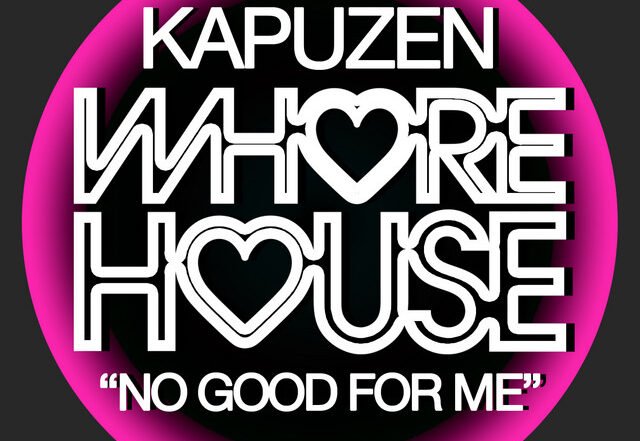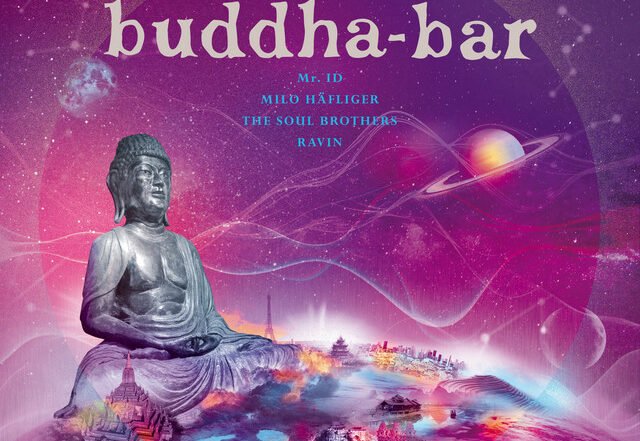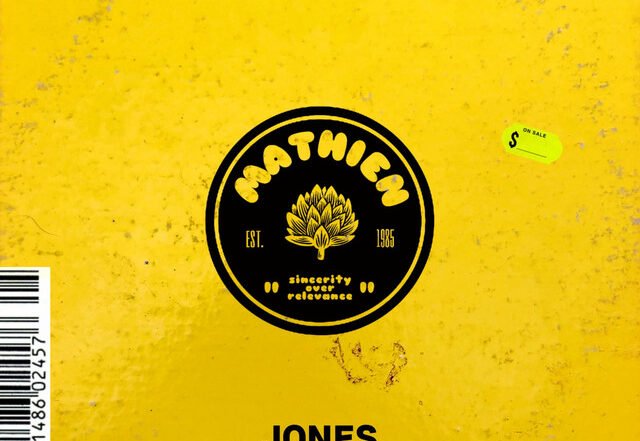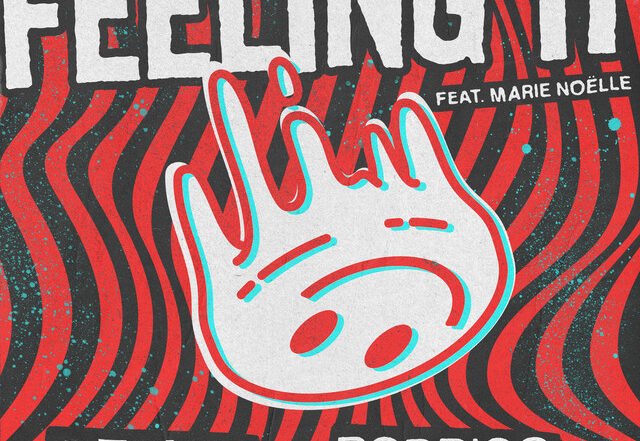House Music ⁞ New Releases⁞ Artist Interviews⁞ Music News
Introduction of House Music
House music is a genre of electronic dance music that originated in the 1980s in Chicago, Illinois. It is characterized by its use of a four-on-the-floor beat, synthesizers, and electronic drum machines, as well as prominent basslines and vocals that often feature repetitive phrases and a strong emphasis on rhythm. House music is often associated with the club scene and has been popularized by DJs and producers who create and play the music at clubs and other venues around the world. It has also been influential in the development of other electronic dance music genres such as techno, trance, and garage.
House by Nagamag Playlist on Spotify
House Featured Releases
Latest House discoveries
Sina Bathaie – Valhalla
Η εξαιρετική μελωδία διαπερνά το μυαλό μου. Τα συναισθήματα ξεδιπλώνονται και εκδηλώνονται με τις πιο λαμπερές τους αποχρώσεις. Ο ρυθμός φωτίζει την ψυχή και τ... >>> Read more & listen to this song on Nagamag #organichouse #nagamag #musicmagazine IG: @sinabathaie
Kapuzen – No Good For Me
Totally old school vibes with this song, from lush piano theme to vocals. Only the groove, drums and rhythm parts are modern in production. The bass line groov... >>> Read more & listen to this song on Nagamag #techhouse #nagamag #musicmagazine IG: @KapuzenMusic TW: @KapuzenMusic
Pandhora x Stephane Salerno – Mayana
Η Μυστηριακή και μεθυστική μελωδία καταλαμβάνει το μυαλό και σιγά σιγά επεκτείνεται σε όλες τις αισθήσεις. Τα φωνητικά καταπραΰνουν και ηρεμούν. Το σώμα έρχετα... >>> Read more & listen to this song on Nagamag #organichouse #nagamag #musicmagazine IG: @pandhora.music TW: @pandhoramusic
CASHÆ x Kiddo AI – Hold On
Working on certain vocal timbres, soft melodies and catchy rhythmic patterns, "CASHÆ" and "Kiddo AI" will make your day. A warm fusion of Deep House and Afro-p... >>> Read more & listen to this song on Nagamag #commercial #afrobeats #afropop #afrofusion #deephouse #nagamag #musicmagazine
Paradoks – New Beginning
Just love the deeper atmosphere of the drums and rhythm parts. With lush piano chords and great vocals, song progresses so well. Lead synth sound is amazing an... >>> Read more & listen to this song on Nagamag #melodictechno #house #deephouse #altpop #nagamag #musicmagazine IG: @paradoks.music
Katerina Nicole – Under Water
When ever I hear some beautiful piano chords, almost always the song hooked me in, same goes with this one. With perfect vocal to get you sing along, that pia... >>> Read more & listen to this song on Nagamag #melodictechno #house #deephouse #nagamag #musicmagazine IG: @itskaterinanicole
Mathien – JONES
Really like the blurry productions of sounds, making that lo fi atmosphere that I like a lot. All the samples used feels really organic in a way how they are p... >>> Read more & listen to this song on Nagamag #organichouse #lofihouse #french #filterhouse #nagamag #musicmagazine IG: @mathien
Hix x Kelli-Leigh – Oh No You Didn’t
With lush piano theme, sounded like it came directly from the 90's club scene and many anthems from that time, this song really can carry its quality. Love the... >>> Read more & listen to this song on Nagamag #commercial #deephouse #nagamag #musicmagazine IG: @djhix
Bexxie x Marie Noelle x Rodrigo Serna – Feeling It
Вам может показаться, что такую музыку в жанрах Melodic Techno & House можно слушать исключительно в атмосфере клуба или на шумных вечеринках, но вы ошибаетесь... >>> Read more & listen to this song on Nagamag #melodictechno #house #techhouse #nagamag #musicmagazine IG: @bexxiemusic
Some House subgenres
There are many subgenres of house music, each with its own unique characteristics and influences. Some common subgenres of house music include:
Deep house: A subgenre of house that originated in the 1980s and is characterized by its use of complex chord structures, smooth basslines, and a relaxed, atmospheric sound.
Tech house: A subgenre of house that combines elements of techno and house music and is characterized by its use of intricate, percussive rhythms and a strong emphasis on production techniques.
Acid house: A subgenre of house that originated in the 1980s and is characterized by its use of the Roland TB-303 synthesizer, which produces a distinctive, squelchy sound known as the “acid” sound.
Tribal house: A subgenre of house that originated in the 1990s and is characterized by its use of percussion-heavy rhythms and a strong tribal influence.
Electro house: A subgenre of house that originated in the 2000s and is characterized by its use of electronic and synthesized sounds, as well as heavy basslines and a fast tempo.
Chicago house: A subgenre of house that originated in Chicago, Illinois and is characterized by its use of a four-on-the-floor beat, electronic drum machines, and synthesizers.
Funky house: A subgenre of house that combines elements of funk, soul, and disco with a four-on-the-floor beat and electronic production techniques.
Minimal house: A subgenre of house that originated in the 2000s and is characterized by its use of stripped-back, minimalist production techniques and a focus on subtle changes in sound and rhythm.
Progressive house: A subgenre of house that originated in the 1990s and is characterized by its use of complex, evolving melodies and a focus on building tension and releasing it through the use of breakdowns and buildups.
Soulful house: A subgenre of house that combines elements of soul, funk, and disco with a four-on-the-floor beat and electronic production techniques.
Bass house: A subgenre of house that originated in the 2010s and is characterized by its use of heavy basslines, distorted synths, and a focus on high-energy dancefloor appeal.
Jackin’ house: A subgenre of house that originated in Chicago and is characterized by its use of a four-on-the-floor beat, funky basslines, and a strong emphasis on rhythm.
Ghetto house: A subgenre of house that originated in Chicago and is characterized by its use of raw, stripped-back production techniques and a focus on bass-heavy, percussive rhythms.
These are just a few examples of the many subgenres of house music that exist. Many house producers and DJs draw from a wide range of influences when creating their music, and the lines between different subgenres can be blurry at times.
The most used instruments in House Music
In house music, electronic instruments and production techniques are often used to create the distinctive sound of the genre. Some common electronic instruments and equipment that are used in the production of house music include:
Synthesizers: House music often makes use of synthesizers to create a wide range of electronic sounds, including basslines, melodies, and percussion.
Drum machines: House music often makes use of drum machines to create the characteristic four-on-the-floor beat that is a hallmark of the genre.
Samplers: House music producers often use samplers to manipulate and incorporate sounds from other sources, such as vocals, percussion, or other instrumentation, into their tracks.
Digital audio workstations (DAWs): House music producers often use digital audio workstations to create, edit, and arrange their tracks.
DJ controllers: House music DJs often use DJ controllers to mix and manipulate tracks in real-time.
Effects processors: House music producers and DJs often use effects processors, such as reverb, delay, and filters, to shape the sound of their tracks.
Vocals: vocals are often used in house music. In many cases, vocals are used to provide a catchy, repetitive phrase or hook that helps to drive the rhythm of the track and create a memorable listening experience. House music vocals are often processed with effects such as reverb, delay, and filtering to give them a distinctive sound. In some cases, house music producers will sample vocals from other sources, such as classic soul or disco tracks, and incorporate them into their own tracks. House music vocals can be performed by a solo artist or a group, and can be sung or spoken in a variety of styles. The lyrics in house music can vary widely depending on the specific track and the artist who created it. Some house music tracks may have lyrics that focus on themes such as love, relationships, or personal experiences, while others may have more abstract or spiritual themes. In some cases, the lyrics of a house music track may be secondary to the overall atmosphere or groove of the track, and may be used more as a means of creating a particular mood or feeling rather than conveying a specific message. In other cases, the lyrics of a house music track may be more prominent and may be used to convey a specific message or theme. Ultimately, the meaning of the lyrics in a house music track will depend on the specific artist and the context in which the track was created.
In addition to these electronic instruments, some house music producers and DJs may also incorporate live instrumentation, such as keyboards, drums, or guitar, into their tracks.









